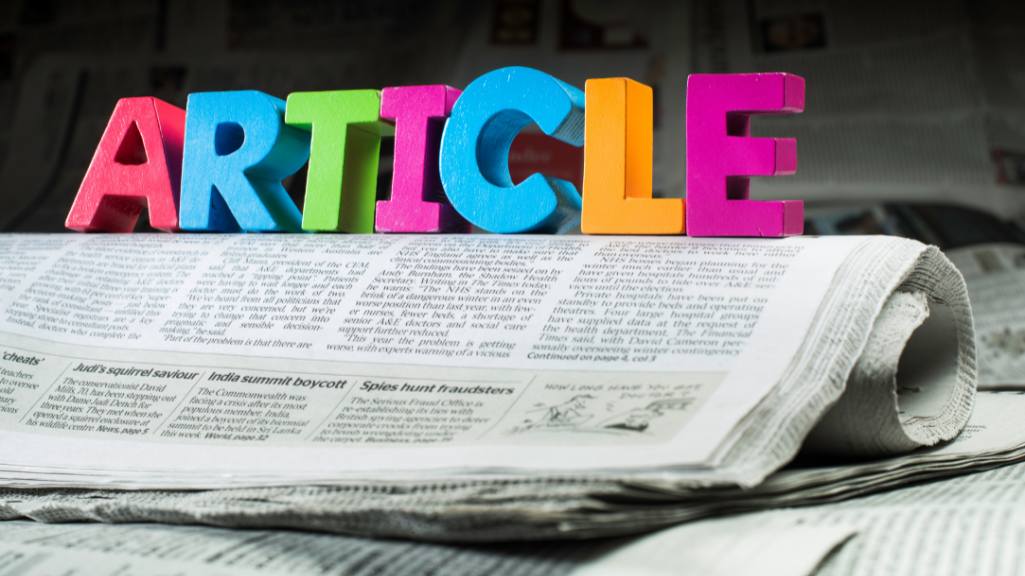Mastering the Art of Writing SEO-Optimized Article Abstracts
Vikash Jain
. 4 min read
These are some guidelines to follow while crafting your abstract. Academic papers are notoriously time- and energy-consuming to write. You'll need to write an abstract of your work before submitting it to a publication, presenting at a conference, or finishing your Master's thesis or Doctoral dissertation. Given that this piece of writing is meant to summaries and represent your work, you naturally want it to look its best. Additionally, if you're seeking real-time feedback and further guidance on perfecting your abstract, consider engaging in an omegle chat with experienced researchers and academic professionals.

A Comprehensive Guide for Academic Authors
Choose the Appropriate Kind
You may pick between an informative abstract and a descriptive abstract. Brief articles often have descriptive abstracts, whereas lengthier, more technical works typically have instructive abstracts. In order to improve your writing, you should determine which format is preferred. Each contain distinct parts but essentially serve the same function of summarizing your work. You must be careful whatever kind you choose, since selecting the incorrect one may cause you to overlook crucial information.
Unlike descriptive abstracts, informative ones are often expected
More than merely a description of your work, they expand upon its significance. In addition to covering the whole scope of an abstract's goal, methods, and objectives, findings and conclusions discuss what you've found. As a result, informative abstracts tend to be longer than their less-informative counterparts; nonetheless, they still seldom exceed 10 percent of the total paper length. The third kind of critical abstracts you can come into is more academic in nature.
While abstracts are seldom requested
Those who must supply them should note that doing so necessitates tying and perhaps criticizing the abstracted work to the writer's own study. Thoughtfully analyze the third option. One must first consider who will be reading the abstract before beginning to write it. Although the ideas and jargon you employ will make perfect sense to other experts in your subject, the typical reader or someone from a different scientific discipline will likely be lost.
Many individuals scan scientific publications in search of information that could be valuable to them
You can assist make their search less overwhelming by writing for that audience and tailoring your work to their needs. Fourth, when you begin to write the abstract, you should emphasize the significance of your study.
There are four main points to cover when conveying the significance of your research to your readers:
(1) Why you chose to conduct the research?
(2) Why it matters to you and could matter to others?
(3) How the research was conducted?
(4) Why others should spend the time and effort reading your entire work?
Provide a detailed description of the issue and the steps you took to solve it
The success of any study depends critically on your ability to specify its boundaries. Your study must have a central claim or argument, which should be stated in the abstract. Research methods, sources consulted, and supporting evidence should all be discussed. Contradictory claims. In other words, you'll need to detail how you conducted your study. Six, don't re-use text from elsewhere. Despite the fact that you are a genuine researcher, you still can't just cut and paste paragraphs from your own work into the abstract.
It shouldn't just be a bunch of paraphrased lines pasted together
Provide a visual appeal and a sense of mystery. Create it from scratch in a manner that will entice the reader to read the rest of your work. One way to prevent using the same words and phrases over and over again is to expand your vocabulary and phraseology. But, don't go overboard, and don't include sources that aren't cited in your paper. A deceptive hook won't work here. Keep the abstract free of any definitions or explanations.
As a general rule, you shouldn't go into too much into in your summary
Your abstract should follow the standard essay format, with an introductory paragraph, main body, and concluding paragraph. Keep in mind that the sequence in which you write is just as important as the content itself. Maintain coherence and brevity. Do away with any ambiguity or multiple meanings and state what you mean. Avoid using any abbreviations or acronyms.
Even if you could describe them, your word limit definitely wouldn't enable you to
For the same reason, you should avoid include things like tables, graphs, references, and lengthy quotations in your abstract. You want to be succinct while yet providing relevant information. Eighth, make sure you use keyword phrases and verb tenses. You have undoubtedly used a search engine before and know how it works. Whatever it is you're trying to locate, just key it in and millions of results will appear. Using five to ten relevant keywords or phrases in your abstract may assist potential readers locate your work among millions of publications.
Think about what people may be searching for and build off of it so that your work comes up first
The keywords you include might also affect how your work is evaluated by review boards and editors. It's in your best advantage to make that decision crystal clear, since it will encourage professionals in the appropriate sector to peer review your work. Your abstract may or may not include a summary of your findings, depending on the format you choose.
No matter how detailed your abstract is, you still need to summaries it
The paper's introduction should include a summary of your study's significance and broader significance. Editing and proofreading, position ten Don't kid yourself into thinking you can avoid making any blunders in a little essay of 200 words or less. You should proofread your abstract multiple times to catch any mistakes in language or spelling, and you should also use the correct formatting. It never hurts to have a second set of eyes look things over. It's common for us to be blind to our own faults, even if others may be able to see them clearly.
Conclusion
In conclusion, crafting an excellent abstract for your academic paper requires careful consideration of the appropriate kind of abstract, whether informative or descriptive. Informative abstracts are often preferred as they go beyond just describing the work and expand on its significance, findings, and conclusions. It's important to consider your audience and tailor your writing accordingly, avoiding jargon that may be difficult for non-experts to understand. Follow the standard essay format, be concise and clear, and proofread for errors. By following these guidelines, you can create a compelling abstract that represents your work effectively.
More Stories from
Decoding the DNS: Enabling Seamless Internet Connectivity
The Domain Name Service (DNS) is a vital system that translates user-friendly domain names into machine-readable IP addresses, enabling seamless internet connectivity.
SEO Healthcare Trends to Watch in 2023: Elevating Your Business with SEO
This article discusses the importance of staying up-to-date with the latest SEO trends in the ever-changing world of search engine optimization.
Fortifying Digital Assets: Ensuring Robust IP Security in a Connected World
It highlights the value of safeguarding intellectual property from external and internal threats, emphasizing the preservation of innovation and competitive advantage.
LAN Event Generator: Powering the Next Generation of Local Area Network Gatherings
Discover the game-changing impact of the LAN Event Generator, a sophisticated software application designed to streamline the organization of LAN events.
Google Photos: Your Ultimate Digital Memory Keeper
Explore Google Photos: Your ultimate memory keeper with automatic backup, smart organization, and easy sharing features.









.png?width=40&aspect_ratio=1:1)


.png?width=40&aspect_ratio=1:1)